Junk food seems to be everywhere, and it’s easy to fall into its addictive trap. Its appeal comes not just from its taste but also its convenience. Yet, if we’re looking to live a healthy and balanced life, it’s important to cut back on junk food. In this article, we’ll share some practical tips to help you break free from the junk food cycle. From meal planning to finding healthier alternatives, these tips will guide you on the path to a happier, healthier lifestyle.
The Rise of Junk Foods
The junk food industry is massive and profitable, with food and beverage companies generating billions of dollars annually through advertising aimed at children. The Center for Science in the Public Interest (CSPI) estimates that this revenue reaches $1.6 billion annually. Despite the well-known health risks associated with junk food, its convenience and irresistible taste make it a popular choice for many.
Junk food is generally high in calories, sugar, and unhealthy fats, contributing to the growing obesity epidemic. It lacks essential nutrients and is carefully crafted by food manufacturers to override our internal “stop” signals. From cakes to potato chips and biscuits to soda, junk food is readily available and tempting, but its long-term health impacts are undeniable.
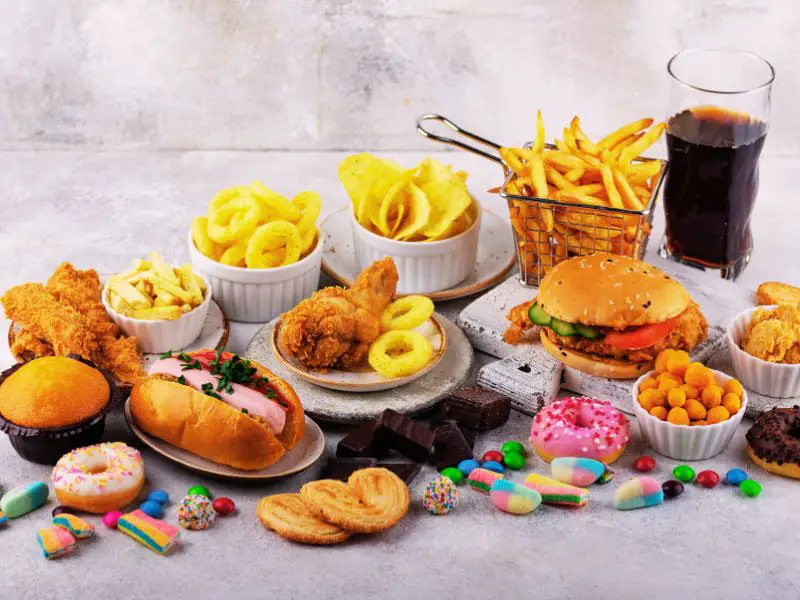
Why Is It Addictive to Eat Junk Food?
Are you constantly battling the urge to indulge in unhealthy snacks and junk food? You’re not alone! They designed these foods to be irresistibly delicious and override our internal “stop” signals, making it incredibly difficult to break free from their addictive grip.
The mastermind behind this culinary sorcery is Howard Moskowitz, a renowned American market researcher who has dedicated his career to creating tantalizing flavor profiles that keep us coming back for more.
The Science Behind the Bliss Point
But why can’t we resist? Our bodies respond to the bliss point, a perfect balance of sugar, salt, and fat, triggering reward pathways in our brain that release dopamine, a neurotransmitter associated with pleasure and euphoria. This creates an addictive cycle of cravings, overeating, and weight gain.
Our brains remember what actions make us feel good and recall those experiences when we feel bad. Over time, this becomes an automatic habit, but it’s not just about pleasure. Food also brings joy through social experiences and memories. But we must recognize the difference between enjoying food and developing unhealthy habits from overeating junk food.
Studies show that sugar can lead to addictive behavior, like certain drugs, and override our ability to know when we’re full. A trial on rats showed that combining sugar and fat leads to overdrive in their pleasure receptors, overpowering their internal stop switch. The more junk food the rats consumed, the more they needed to achieve the same pleasure.
How Does Junk Food Affect You?
First, junk food is often high in calories, sugar, and unhealthy fats. This means that if you eat it regularly, you’re likely to gain weight and increase your risk of obesity and related health problems, such as heart disease, type 2 diabetes, and certain types of cancer.
Junk food can also affect your energy levels. Foods high in sugar can give you a quick burst of energy, but you’ll likely crash soon after. This can leave you tired and sluggish, making it harder to stay focused and productive throughout the day.
Eating junk food can also hurt your mental health. Junk food is often high in salt, which can contribute to feelings of bloating and discomfort. And consuming too much sugar can also affect your mood and energy levels, leading to feelings of anxiety, depression, and irritability.

How Full Can You Be With Junk Foods?
Junk food is a tricky beast. On the one hand, it’s tempting and delicious, but on the other hand, it’s not doing your body any favors. Here’s why.
When you eat junk food, your brain gets energy from the calories, but not enough to satisfy your hunger. This leaves you craving more, even though you’re technically not hungry anymore. Junk food is often high in sugar, salt, and fat, triggering pleasure receptors in your brain and leading to overeating.
The problem is junk food is often devoid of essential nutrients, so it doesn’t nourish your body. You’re left unsatisfied and hungry, leading to a never-ending cycle of snacking and overeating.
So, next time you’re tempted by junk food, remember that it might taste good but will leave you feeling full and satisfied for a short time. Choose snacks that will nourish your body and keep you happy for longer.
What Are Bliss Point Foods?
Junk food cravings can often surprise us, sneaking up on us in the most unexpected places. While it’s easy to point the finger at the usual suspects – cakes, biscuits, doughnuts, ice cream, and the like – the less obvious foods can often be the real culprits.
Here’s what to look out for:
1. Sauces
That jar of tomato sauce sitting in your pantry? It might be hiding a hefty amount of sugar and salt.
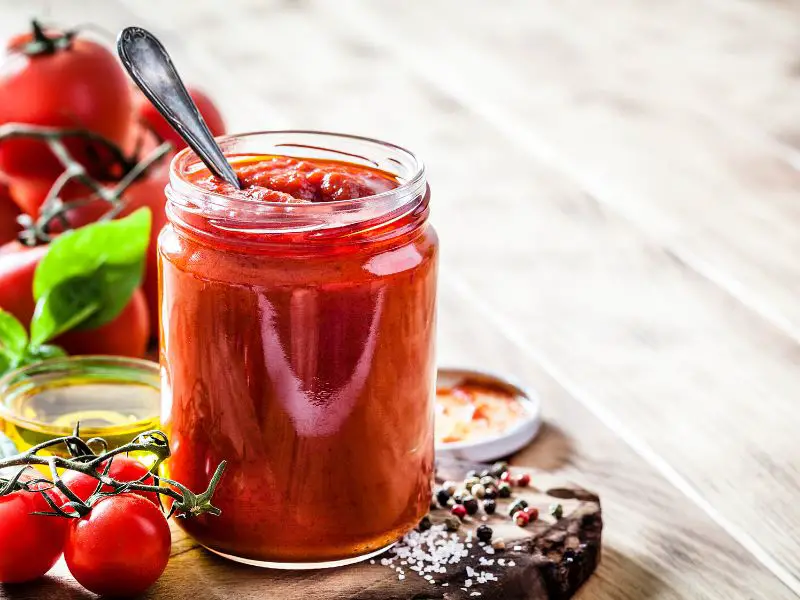
2. Dressings
Salad dressing can be a real sugar trap, so check the ingredients before pouring it on.
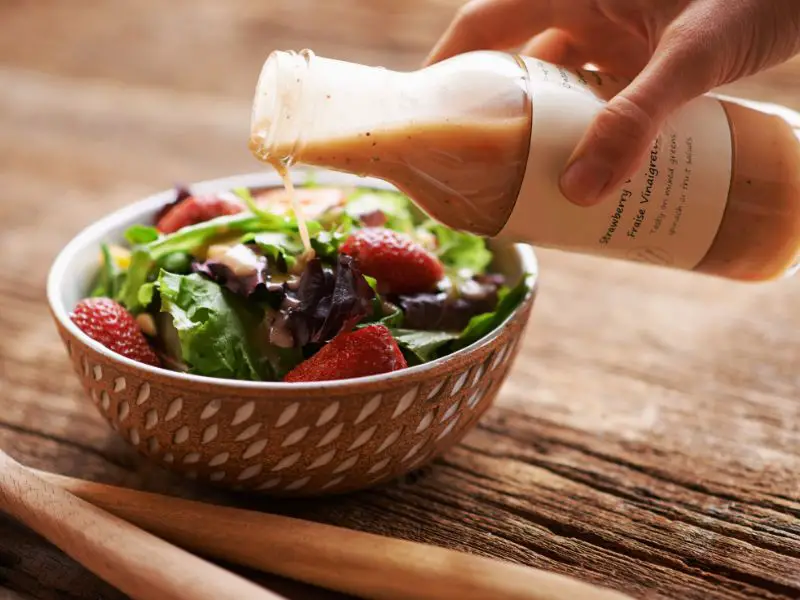
3. Dips
Whether it’s hummus, guacamole, or ranch, dips can be surprisingly high in salt and sugar.
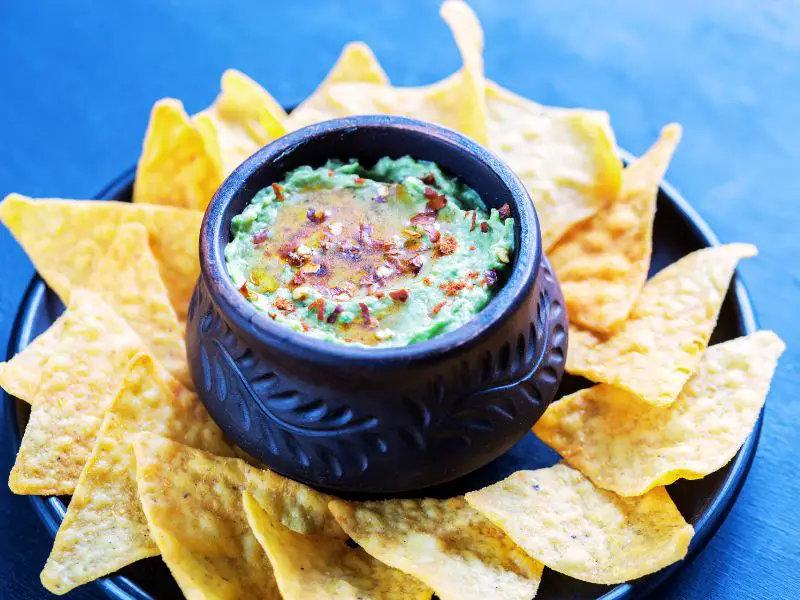
4. Soups
Even a seemingly healthy bowl of soup can be loaded with added sugars and preservatives.

5. Bread
Not all bread is created equal, from white to whole grain. Make sure to read the label and choose wisely.

6. Cereal Bars
A quick and convenient snack, but many cereal bars can contain more sugar than a candy bar!
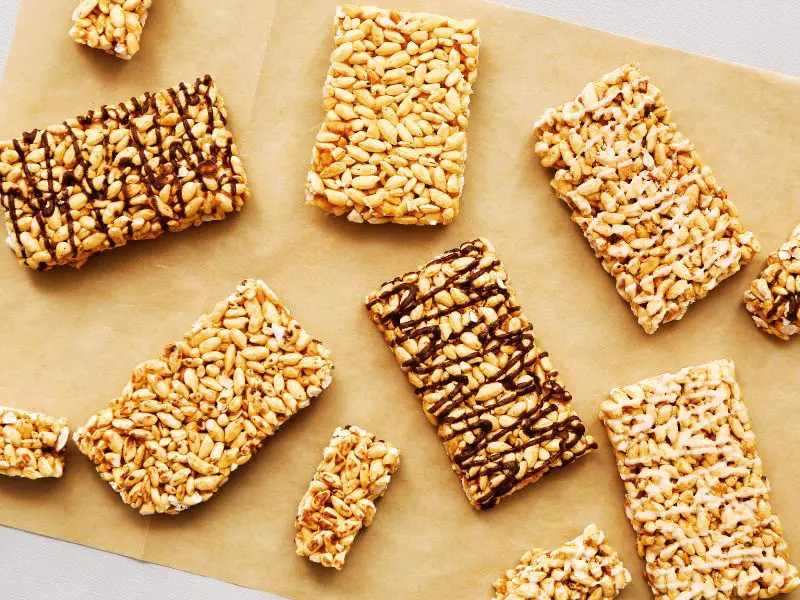
So, check the ingredients next time you’re tempted by less obvious junk food. Chances are, it might not be as innocent as it seems.
Expert’s Tips on How to Stop Eating Junk Food
Are you tired of feeling guilty after indulging in junk food? Do you find yourself constantly reaching for those sweet and salty treats despite your efforts to resist? It’s time to take control and break free from the cycle of junk food cravings. Here are some tips from psychotherapists on how to stop eating junk food for good.
1. Out of Sight, Out of Mind
Put those tempting treats out of sight! A 2017 study published in PLoS ONE found that people were less likely to snack on junk food when placed farther away, requiring a deliberate effort to reach for it. So, try storing those sugary snacks in a hard-to-reach cabinet or pantry. Your waistline will thank you!
2. Opt for Classic White Plates
A recent study uncovered a surprising fact – the color of your plate can impact your food intake. When served on red or black plates, participants ate more pasta and soda than white ones. To control portion sizes and eat less, consider swapping out vibrant plates for classic white ones, and add color to your meals through various fresh fruits and vegetables. (Take control of your cravings and follow these 14 scientifically proven methods to beat them for good!)
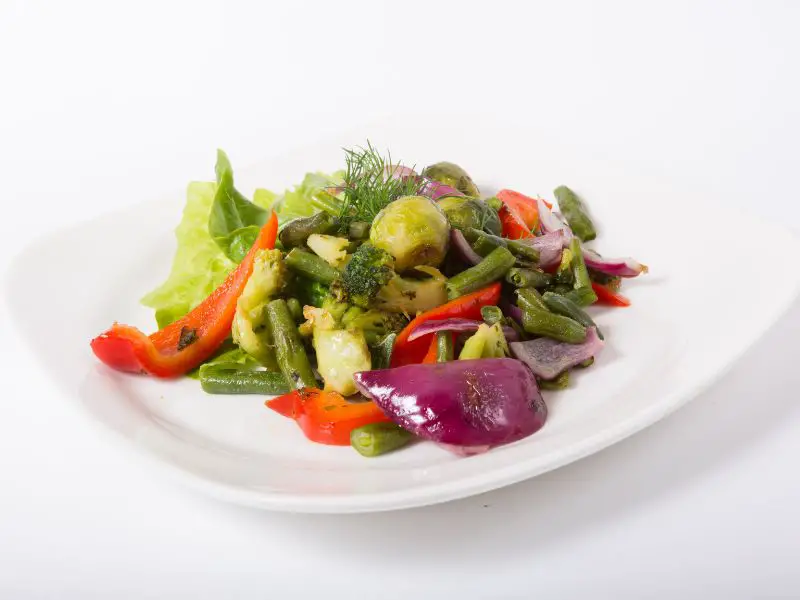
3. Switch Up Your Afternoon Ritual
Tired of falling into the same snacking pattern every day at 3:00 PM? It’s time to switch things up! Start a new tradition and take a 15-minute walk around the block instead. A study published in PLoSOne in 2015 found that short walking can temporarily reduce cravings for unhealthy, sugary snacks. Not only will you break the cycle, but you’ll also reap the many benefits of a quick walk.
4. Keep Healthy Snacks Within Reach
Make it easy to access your go-to healthy snacks. Keep them front and center so they’re the first thing you see when you open the fridge or pantry. This way, you’ll be more likely to reach for them instead of junk food. A study published in Health Education & Behavior found that people with fruit on their kitchen counters had a lower body mass index (BMI) than those who kept junk food in plain sight.
5. Identify your Temptation
Triggers Are you drawn to rich, chocolatey desserts or salty, crunchy snacks? Whatever your junk food weakness, take the time to acknowledge it. Once you know your trigger foods, you can consciously keep them out of your kitchen. Opt for healthier alternatives, like fresh fruits and veggies that can satisfy your cravings in a nutritious way.
Treat your taste buds to guilt-free delights! Explore healthy sweet snacks and sip on nutritious beverages for a delectable and nourishing experience. Satisfy your cravings the wholesome way!
Bottomline
Eating junk food is a common problem that affects many people. The addictive nature of junk food is not just about taste but also convenience and the perfect balance of sugar, salt, and fat that triggers reward pathways in our brain, releasing dopamine and creating an addictive cycle. Junk food can negatively impact our physical and mental health, causing weight gain, low energy, and mood swings.
We must be mindful of our food choices and environment to break free from junk food cravings. By keeping junk food out of sight, opting for classic white plates, switching up routines, keeping healthy snacks within reach, and identifying our trigger foods, we can take control and make healthier choices for our bodies and minds. With the help of expert tips from psychotherapists, we can break the cycle and achieve a happier, healthier lifestyle.

